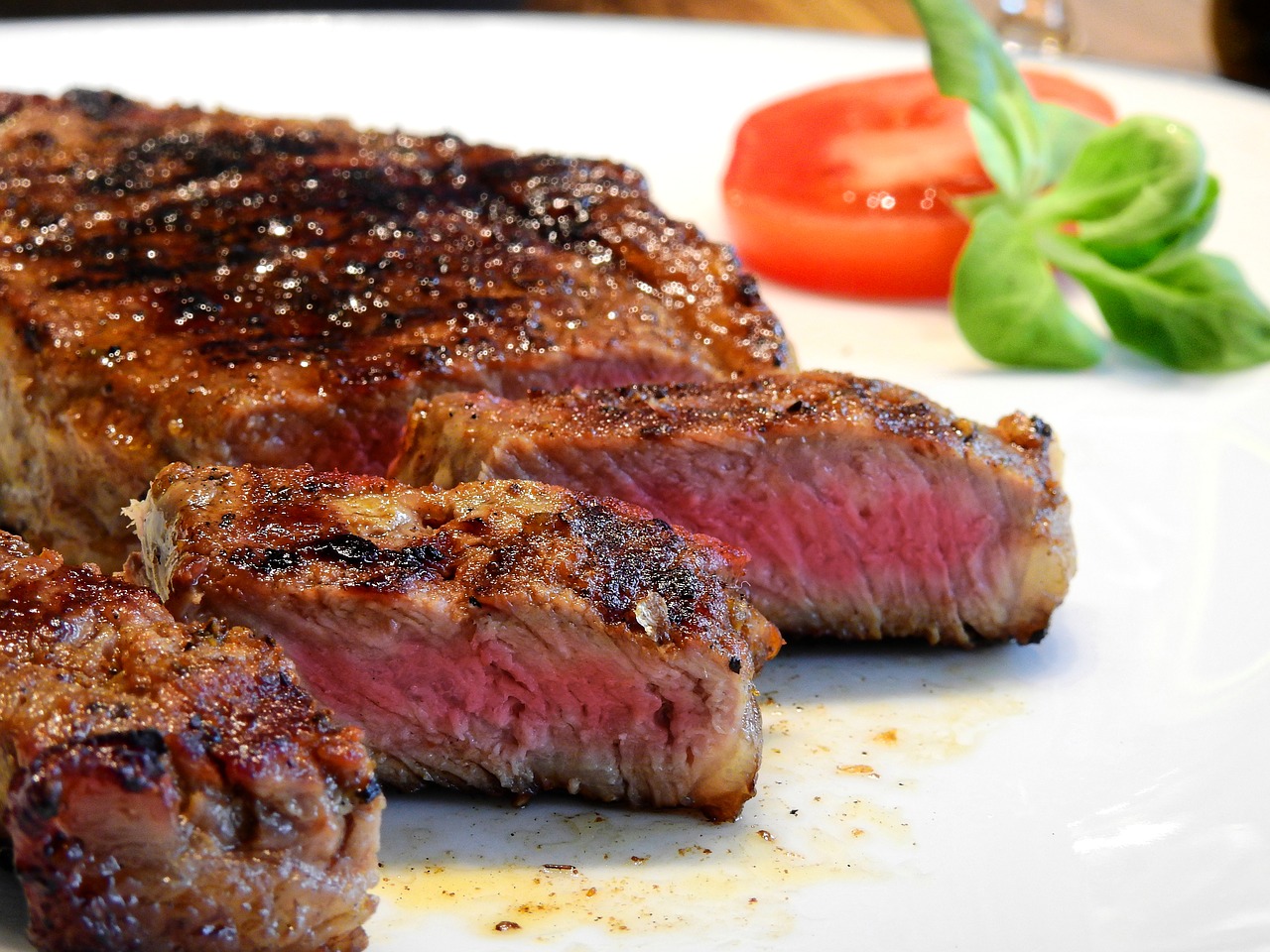
Many people think meat is all about iron though meat has far greater value to our bodies than that.
Meat is a key source of protein in our diets. Protein is necessary to build, repair and maintain body tissues, organs and cells in all parts of the body. Proteins are complex molecules and are made up of smaller units called amino acids. While our body can make some of the amino acids, other amino acids called essential amino acids must be sourced from our diets. A food that provides all the essential amino acids is called a high-quality protein food. Beef and lamb are such foods, providing our bodies with an excellent source of essential amino acids and thus protein.
A serving of 100g cooked lean beef or lamb provides about 27-30g of protein.
Fat in food is generally a combination of saturated, polyunsaturated and monounsaturated fats and provides a concentrated source of energy for our bodies. Foods high in fat are high energy. One gram of fat provides 37 kilojoules (kJ) or 9 calories. In comparison, a gram of protein provides 17kJ (4 calories) and a gram of carbohydrate provides 16kJ (4 calories). We require some dietary fat as it provides the essential fatty acids necessary for the absorption of certain vitamins (A,D,E and K).
Beef and lamb contain polyunsaturated and monounsaturated fat which are “good” unsaturated fats, in addition to saturated fats. Lean beef and lamb contribute the healthy monounsaturated fat necessary in our diets.
Omega 3 is one of the polyunsaturated fats (the other being omega 6) found in beef and lamb. Omega 3 is important for brain function. Grass-fed beef and lamb contains a higher level of omega 3 than grain-fed animals.
Zinc is part of all living cells in the body. It enables growth, sperm production, night vision, appetite, sense of taste and smell, and maintains a strong immune system, which in turn helps us fight infections. Zinc is found in many foods. Red meats, especially liver and kidneys, are high in zinc. This means that beef and lamb are a good dietary source of the zinc necessary for our bodies. The protein found in beef and lamb also helps our bodies absorb zinc whereas other foods such as grains and vegetables contain components which can inhibit zinc absorption.
Vitamins in our diet are key to maintaining good general health. Beef and lamb provide excellent sources of the key vitamin B12, which is necessary for for the production of red blood cells. 100g of lean beef provides your total vitamin B12 needs for the day. Beef and lamb also contain significant amounts of other B vitamins in addition to vitamin A and vitamin D, both necessary in our diets to maintain healthy bodies.
